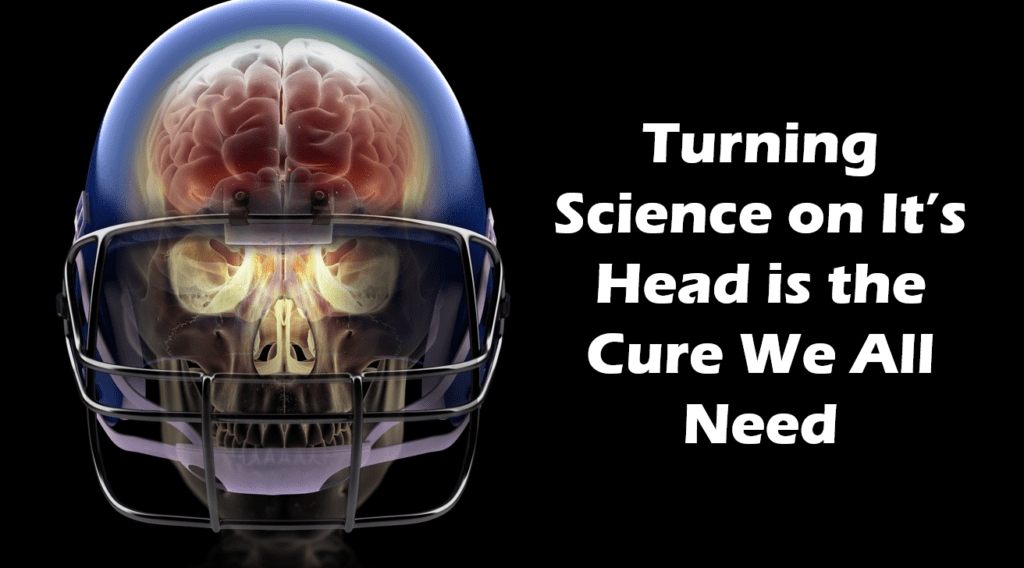When Up is Down: God I Love Real Science

One of my favorite things about real science is that it sometimes reverses itself completely. While that’s a very uncomfortable position for most, it’s very satisfying for me. Let’s dig in.
When Up Is Down
As a society, we have a very serious and dangerous problem. We have politicized science. The problem? Science is fluid. What is almost fact today may well be fiction tomorrow, however, politics thrives on certainty.
A great example from my past is stomach ulcers. When I was in medical school they were caused by stress. An entire industry was created to treat the stress that caused stomach ulcers. Government panels were created to deal with the awful effects of stress on the body. School kids were taught stress-relieving techniques so that they wouldn’t get ulcers as they became adults. The problem? In the 1980’s someone discovered that stomach ulcers were really caused by a strange bacteria known as H. pylori. In fact, they had nothing to with stress.
Concussions and the NFL
One of the political scientific narratives of the last decade has been that NFL players suffer from head trauma that leads to dementia and brain damage. This “fact” has launched countless government panels, caused the NFL to changed its rules, discouraged hundreds of thousands of kids from playing football, and even launched a movie with Will Smith. But what if it was all fiction?
The new study looked at a small number of older retired professional football players (ages 64-77) with a history of concussions who had been diagnosed with mild cognitive impairment (MCI), which is a known risk factor for Alzheimer’s disease (1). The 10 football players and 10 nonathletes were administered a battery of cognitive tests to assess their verbal learning, memory, and language skills. The nonathletes also had MCI and were recruited from an Alzheimer’s clinic, but did not have a history of traumatic brain injury.
The athletes and nonathletes turned out to be very similar in their cognitive impairment, specifically in verbal memory and learning. So while this was a small study, its conclusions are that athletes with MCI may just be people who were going to get cognitive impairment whether they played football or not.
The one difference between the two groups was in word-finding (being shown an image and then having to name the object). The researchers believe that this one issue could be traumatically linked to damage to Broca’s area of the brain.
Is Playing in the NFL a Risk for Dementia?
More studies will have to be done and the researchers working on this one are actively adding in more players and control subjects. But what if these results hold and are confirmed? What if the only additional cognitive problem that NFL players who end up with MCI is the lack of the ability to find words? That would end up being a completely different picture than the one that the media and politicians rammed down our gullet just a few years back. Which is the point of this blog. Science is fluid. Hence, science and politics don’t mix.
The upshot? Politics and science are awful bedfellows. That’s because the core mission of the scientific method is to constantly question what seems to be scientific fact. When politics are added into that process, a narrative is created that could be potentially false but must be correct to prop up the political imperative.
_______________________________
(1)
- Nyaz Didehbani, Lindy M. Fields, Kristin Wilmoth, Christian LoBue, John Hart, C. Munro Cullum. Mild Cognitive Impairment in Retired Professional Football Players With a History of Mild Traumatic Brain Injury: A Pilot Investigation. Cognitive and Behavioral Neurology, 2020; 33 (3): 208 DOI: 10.1097/WNN.0000000000000240

If you have questions or comments about this blog post, please email us at [email protected]
NOTE: This blog post provides general information to help the reader better understand regenerative medicine, musculoskeletal health, and related subjects. All content provided in this blog, website, or any linked materials, including text, graphics, images, patient profiles, outcomes, and information, are not intended and should not be considered or used as a substitute for medical advice, diagnosis, or treatment. Please always consult with a professional and certified healthcare provider to discuss if a treatment is right for you.
